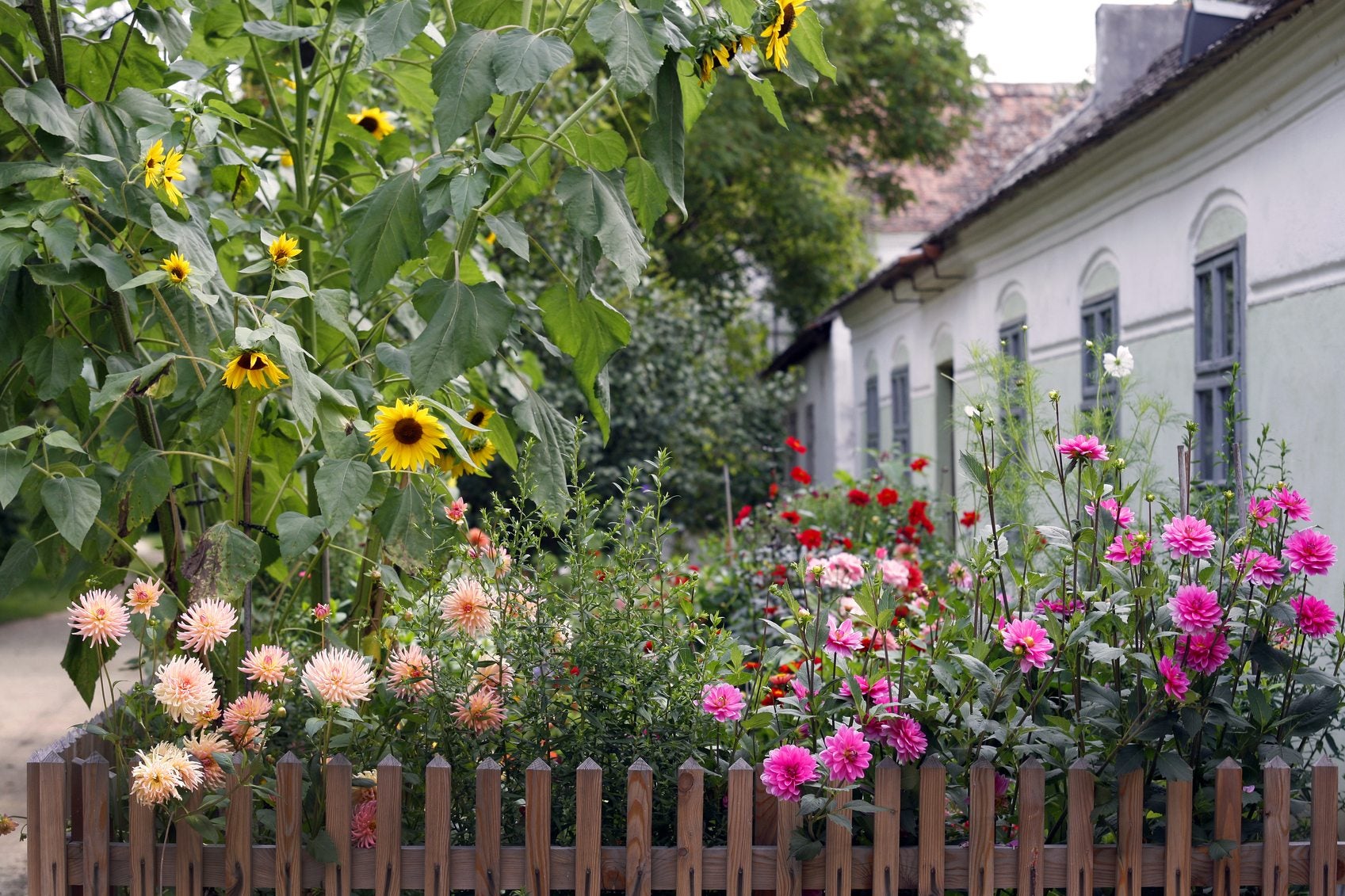Dahlia Companion Plants – Companion Flowers That Complement Dahlia Plants


Sign up for the Gardening Know How newsletter today and receive a free copy of our e-book "How to Grow Delicious Tomatoes".
You are now subscribed
Your newsletter sign-up was successful
There is absolutely nothing like a big bed of dahlia flowers. The blooms come in many colors and sizes, giving any gardener's taste an outlet. When planning your bed, it's a good idea to consider what to plant with dahlias. Dahlia companion plants can be the perfect accents to set off the flowers but may also aid in deterring pests or even act as a decoy and sacrifice themselves to insect predators. There are many flowers that complement dahlia and do double duty to prevent pests.
Dahlia Companion Plants
Dahlias grow from tubers and produce flowers that range in size from dinner plate giants to diminutive discs. Dahlias are perennials and work well in a mixed perennial bed. Consider the huge water needs of these plants when selecting companions for dahlia. Plants can also grow several feet (0.5 to 1 m.) tall and nearly as wide. Lower plants should be able to tolerate some shade and taller plants can be used at the rear of the bed as an accent.
Herbs and Flowers that Complement Dahlia
Choose plants that assist dahlias by repelling pests so the garden bed is free of insects and dahlia health is protected. Herbs are often good choices, as many of them have pungent scents and oils which seem to deter pests.
- Artemisia has glorious silvery foliage that is finely cut and will repel slugs while setting off the lacy foliage of the dahlias. Creeping comfrey tolerates light shade and may also deter slugs.
- Coriander and anise are nice to have in the kitchen garden but also repel aphids, and anise will attract predatory wasps, which kill those sucking insects.
- Other herbal companions for dahlia might be mint, thyme, and rosemary.
Annuals and perennials can coexist peacefully in an ornamental dahlia bed.
- Nasturtiums are notoriously riotous growers with fiery, colorful blooms and repellent properties. You can even eat the spicy flowers.
- Salvia, or flowering sage, produces bright spikes of color which are magnets for pollinators like butterflies and moths.
- Similarly a large clump of Monarda, or bee balm, will bring bees buzzing around the flowers.
- Geraniums have a slightly unpleasant smell but unparalleled flowers in the garden and are toxic to aphids, but attract Japanese beetles in a self-sacrifice that can spare the dahlias.
- Try mixing in old-fashioned bloomers like roses, peony, and lilies for ageless elegance.
As you choose other perennial companions for dahlia, remember to check the size of your plants. Since most dahlia plants form large bushes, taller plants will set them off nicely if installed as a backdrop. Towering joe pye weed, butterfly bush, and agapanthus are excellent vertical choices to brighten up the background of dahlias. Sunflowers seek the sun's warmth as much as dahlias and will thrive in the same garden bed, adding their cheery faces as part of the area's charm. Helenium, marguerite daisies, and goldenrod are other taller plants to add height. Tumble a scattering of annuals in the front of the tubers such as petunia, marigold, ageratum, and bacopa to add a rainbow of color while pulling the whole effect together.
Sign up for the Gardening Know How newsletter today and receive a free copy of our e-book "How to Grow Delicious Tomatoes".

Bonnie Grant is a professional landscaper with a Certification in Urban Gardening. She has been gardening and writing for 15 years. A former professional chef, she has a passion for edible landscaping.